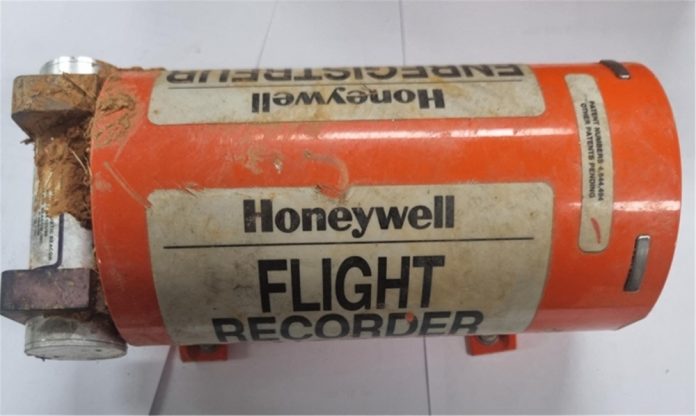South Korea’s Ministry of Transport reported that the black boxes from the Jeju Air flight stopped recording four minutes before the crash, which killed 179 people.
The Boeing 737-800 flew from Thailand to Muan, South Korea, on 29 December. It carried 181 passengers and crew onboard. The plane belly-landed at Muan airport and exploded after hitting a concrete barrier.
This tragic event became the deadliest aviation disaster on South Korean soil.
The transport ministry said the cockpit voice recorder (CVR) and flight data recorder (FDR) failed to capture any data in the final four minutes before the plane collided with the localiser.
The localiser, located at the end of the runway, helps aircraft land. Authorities believe that its role intensified the crash’s severity.
A severe impact damaged the flight data recorder. Authorities initially thought the data was unrecoverable. They then sent the recorder to the United States for analysis by the National Transportation Safety Board (NTSB).
It now appears that the black boxes experienced data failure. This issue has complicated the investigators’ efforts to determine what happened in the final moments of the flight.
“The investigation is ongoing. Plans are in place to determine the cause of the data loss,” the ministry said.
Investigators from both South Korea and the US continue searching for the crash’s cause. The nation felt the weight of this tragedy deeply, and memorials were set up across South Korea.
Investigators continue search for answers
Although the black boxes are essential to the investigation, authorities remain determined to find the crash’s cause.
“The investigation will proceed by analysing various pieces of evidence. We are committed to identifying the exact cause of this tragedy,” the ministry explained.
Investigators have pointed to several possible factors: a bird strike, malfunctioning landing gear, and the runway barrier.
The pilot warned of a bird strike during the first landing attempt and aborted it. On the second attempt, the aircraft crashed when the landing gear failed to deploy.
Lead investigator Lee Seung-yeol shared that feathers were found in one of the engines. He clarified that although a bird strike can damage engines, it does not typically cause an immediate failure.
Ongoing investigations
Authorities have raided locations related to the crash, including offices at Muan airport, a regional aviation office, and Jeju Air’s headquarters in Seoul.
The airline’s CEO now faces restrictions preventing him from leaving the country as part of the investigation.
A joint task force, including opposition parties and government officials, has formed to assist with the probe. After the tragedy, South Korea’s Transport Minister Park Sang-woo offered his resignation.
“As the minister responsible for aviation safety, I feel a profound sense of duty regarding this disaster,” he said.
